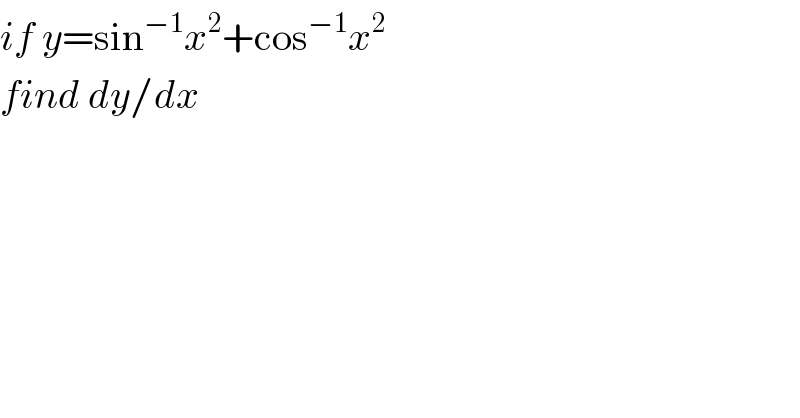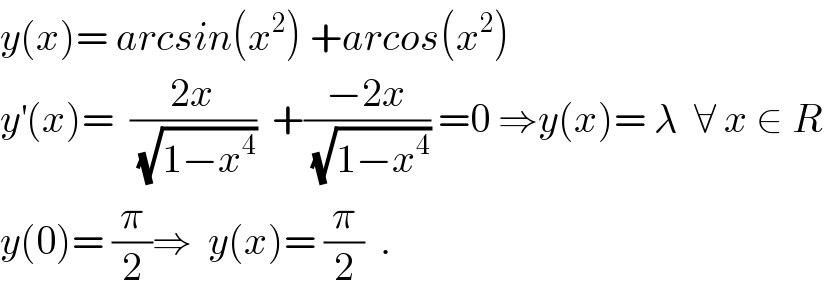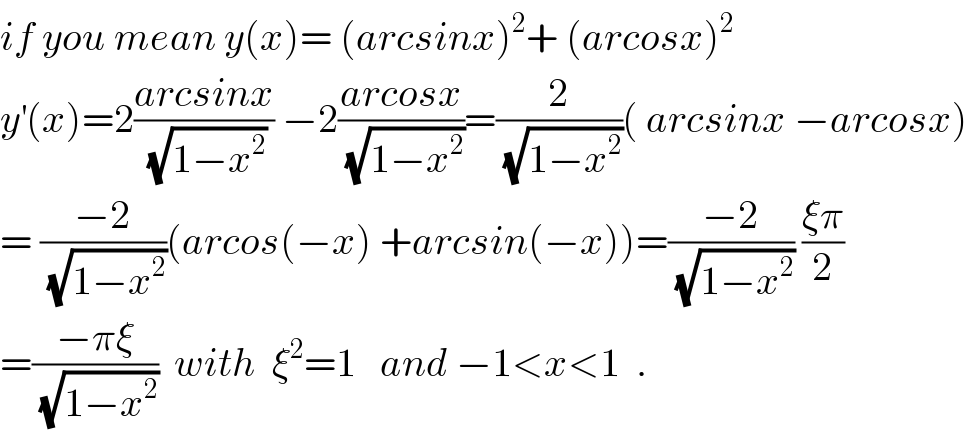
Question and Answers Forum
Question Number 28305 by NECx last updated on 23/Jan/18

Commented by abdo imad last updated on 23/Jan/18

Commented by abdo imad last updated on 23/Jan/18

Commented by NECx last updated on 24/Jan/18

| ||
Question and Answers Forum | ||
Question Number 28305 by NECx last updated on 23/Jan/18 | ||
 | ||
Commented by abdo imad last updated on 23/Jan/18 | ||
 | ||
Commented by abdo imad last updated on 23/Jan/18 | ||
 | ||
Commented by NECx last updated on 24/Jan/18 | ||
 | ||